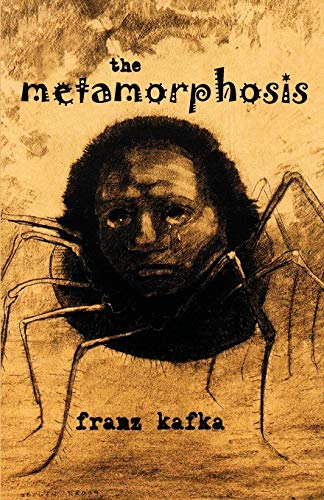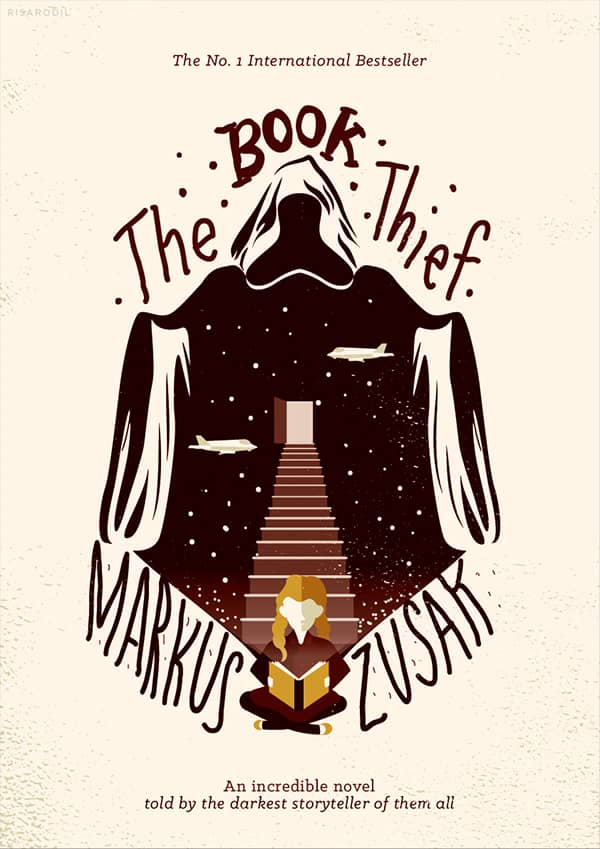
Book Review: The Metamorphosis by Franz Kafka
Imagine one morning, you wake up and find out that you have metamorphosed into a filthy cockroach or a bug or a unicorn (now that would be something from a Barbie fantasy tale), or maybe a dragon, who bleats like a goat with asthma (that would be a glitch in your fantasy tale) or you simply wake up like every day, a normal human being (even that is a burden nowadays). But, in the case of Gregor Samsa, it’s different. One morning, he woke up and found himself transformed into a horrible vermin and thus began the Metamorphosis. A grotesque and tragic tale about the transformation of a human being into an insect whose life turns upside down and is imprisoned into alienation as well as an unvarying struggle to reconcile with humankind. What would you do if you turned into an insect? Would you abandon all hopes of getting your not-so-exciting but mundane life back? Would you accept your new life of being a creepy-crawly creature? Or maybe your fate is to get trampled under a human’s barefoot? Or worse than that, get burnt in the fire of a kerosene lamp, Anton Chekov’s way of slaughtering cockroaches in his stories.
Synopsis
The Metamorphosis is a novella about Gregor Samsa, who works as a traveling salesman and cloth merchant in an unnamed European city. Gregor lives with his family in a small apartment and he is the sole bread earner of the family. One morning, Gregor woke up and found himself transformed into an ugly cockroach. Even though this alteration leaves Gregor in distress, he thinks it’s ephemeral and contemplates what will happen if his family finds out? Worse, what if his boss and manager find out? As Gregor mulls over what-ifs and buts, all of a sudden these questions come true and his nightmares take shape into reality one after the other like a falling row of dominoes. The manager, who is the chief clerk, arrives at Gregor’s apartment to find out why he has not shown up at the office yet. This sudden absence of Gregor from the breakfast table has left his family puzzled too. Both the parties put up a siege in front of Gregor’s room and ask him to come out or else he must face dire consequences for this undisclosed defiance to stay shut in his room.
Themes in Metamorphosis
The chronicle of Gregor’s unforgiving transformation revolves around a handful of themes and motifs that are quite evident in the story. Some of these themes are discussed below:
Alienation
The major effect of the physical transformation from a human being to an insect is the psychological detachment it creates between Gregor and his family as well as the outside world. The development of detachment picks up slowly and builds up to the right until the end of the story. A slow burn, you can say. This isolation from everyone around him takes a toll on Gregor and strips him of his humanity in the eyes of his family, leaving him unable to connect and communicate. The burn of alienation eventually leads to the burden of responsibility on the family to look out and feed Gregor, to take care of him, and especially to hide this abomination from the outside world.
Sympathy and Responsibility
When the secret of metamorphosis of Gregor is known to the family, they all deal with it with utmost apprehension and sympathy, especially his sister, Grete. As the saying goes, “good things don’t last forever”, same goes with the sympathy and responsibility of the family. It comes to an end when the burden of financial crises, the fear of secrets being known to the outside world, and the embarrassment in front of the tenants to the Samsa family. The family losses the patience and sympathy because they grow exhausted and angered to be responsible for him as there’s neither any way to turn him back into a human being nor any miracle that takes place. In the end, even his dearest sister, Grete turns the tables against poor Gregor.
Mind vs. Body
Kafka presents the struggle between Gregor’s human mind and the cockroach’s body in a critical manner, the reader contemplates the theme of mind vs. body. At the beginning of the story, when Gregor wakes up as a cockroach, he is haunted by the thoughts of his incapability to carry out the mundane duties. At first, Gregor seems pretty hopeful about the possibility of performing the duties but soon he finds out that even a wrong turn or botched movement of the body can have dire consequences. The theme of mind vs. body is presented in a multifaceted manner and as a reader, one also relates to it because we are often caught up between the perception of the mind and our body influences of the outside world. There is also a scene where Gregor thinks it’s his mind playing games with him that he has woken up in a body of a cockroach.
The excerpt from the scene goes as “What if I went back to sleep for a while and forgot all this foolishness, he thought. However, this was totally impracticable, as he habitually slept on his right side, a position he could not get into in his present state; no matter how forcefully he heaved himself to the right, he rocked onto his back again.”
Gregor gives up and the response to his physical transformation reflects his usual calm and patient mind in the face of adversity, an almost ludicrous reaction to his state of affairs.
Absurdity and dubiety of life
Right from the first sentence of the story, Kafka sets the events in a chaotic fashion. It’s beyond the natural occurrence that a human being wakes up transformed into a cockroach but since we are in the realm of fiction where anything is possible it does draw a line between fiction and fact. Kafka presents this transformational event like catching a regular illness. There is no explanation or reason given about the unexpected transformation of the character which depicts that life can be harsh and unjust. Neither there is any hint that Gregor deserved such a fate or this was his destiny nor this was a divine punishment, all of this implies that life is unpredictable and absurd at times.
Anatomy
The demise of Gregor’s physical body and the birth of a cockroach’s body leave him impotent to do any physical labor or tend to any duties and this also leaves the Samsa family in a perplexed state. Is Gregor still inside the body? Is there any way we can get our obedient and hardworking son back? Is there any way we can get rid of the abomination that Gregor has turned into? The question they ask themselves never ends and the suffering of poor Gregor goes on. The Samsa family gets buried under the financial crises; transform from a middle-class family to nearly poor, sell off their jewelry and turn to blue-collar jobs, and feed themselves from crumbs of savings that are left. The family struggles with their responsibilities towards him as they work tirelessly and turn hopeless, exhausted, and angry that they are so unlucky as compared to everyone else they know. On the other hand, Gregor slowly fades away and struggles to reconcile with humanity. This transformation leads Gregor into alienation, isolation, and imprisonment where he lives in solitary confinement and no judicial system can save him.
Conclusion
The Metamorphosis is an autobiographical piece of writing in a manner that sheds light on Kafka’s own life. Kafka had a strained and abusive relationship with his father. Gregor, similarly, faces the wrath of his father’s dogmatic behavior. Kafka’s mother and Gregor’s mother share an identical approach to life; sycophant and hiding behind the husband’s presence. As for Kafka’s real-life sister, she was supportive and very close to him but later on turned her back on him and this betrayal leads Kafka to almost commit suicide. Gregor’s sister also had been very close and understood him but in the end, betrayed him by telling the family to get rid of him for once and all.
In a nutshell, Kafka presents the story of Gregor Samsa in a menacing and intricate manner. Often, his writings are deemed as “Kafkaesque” meaning “nightmarishly complex, bizarre, or illogical” which is pretty clear in this story as well. Kafka weaves the story around the existential crises, absurdity and dubiety of life, alienation, brutality, and incomprehensive dogmatic power which leaves the reader bewildered.
At a Glance
Full title – The Metamorphosis
Author – Franz Kafka
Genre – Combination of absurdist fiction and magical realism
Type – Short story or Novella



Comments